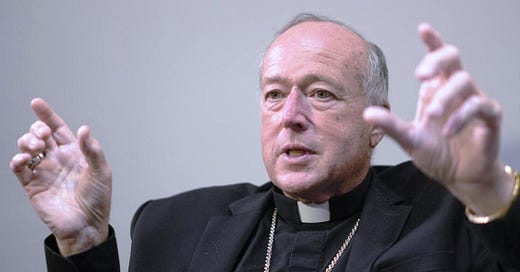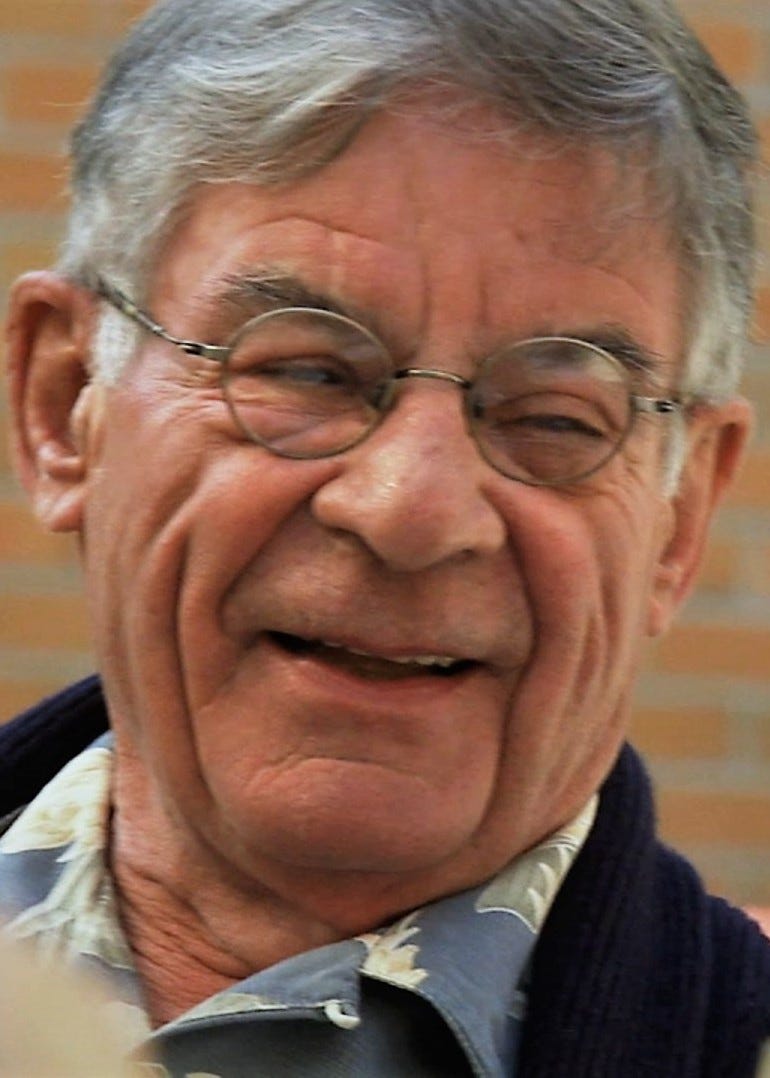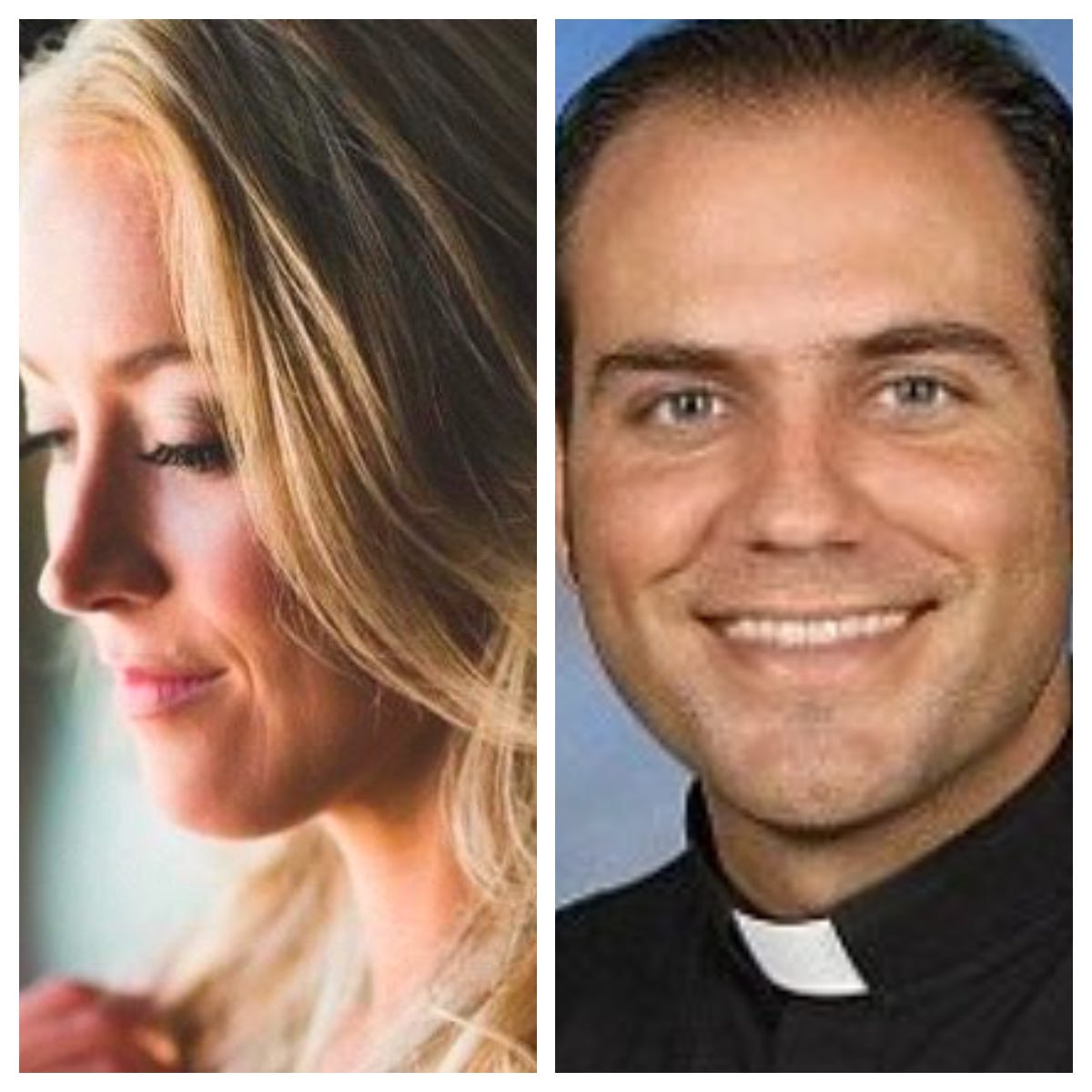Most articles about Cardinal Robert McElroy’s appointment as Archbishop of Washington that have appeared in both the mainstream and Catholic media have been very positive. Georgetown’s University News hailed McElroy as “A Pastor at Heart” and “A Voice for the Vulnerable.” Unbeknownst to most Americans, the media appear to be covering up McElroy’s abysmal sexual abuse record like the Argentine media hid how Cardinal Jorge Bergoglio covered up the abuse of countless victims of sexual predation while claiming in his 2010 book that “clerical sex abuse never occurred in my diocese.”
Do U.S. media sources fear the chances of electing an American as pope might be reduced if the truth about McElroy and the other U.S. cardinal electors were to be revealed? The Survivors Network for those Abused by Priests (SNAP) has been researching the 137 cardinals eligible to vote in the next conclave. SNAP recently issued a statement that the next pope “must have no history of committing or covering up sexual abuse, and he must support enacting a binding and universal zero tolerance law for abuse and cover-up in canon law on day one of his papacy.”
According to a 17 March 2025 SNAP “Call to Action,” not one of the ten U.S. voting cardinals has a clean record in handling clerical sex abuse. In an article entitled, “Five of the Ten Cardinal Electors,” Cardinals Robert McElroy, Joseph Tobin, Wilton Gregory, Timothy Dolan, and Blase Cupich are all accused of being closeted homosexuals and of covering up sexual abuse like Pope Francis did before and after his papal election.
When E.J. Dionne, Jr. wrote an opinion piece in The Washington Post arguing that McElroy “is uniquely suited to the role,” he may have failed to realize that McElroy’s “role” involves covering up for sexually abusive clergy under his supervision. Based on McElroy’s record in San Diego, he is probably one of the most qualified bishops to complete this task, particularly in a See previously governed by none other than ex-Cardinal Theodore McCarrick.
McElroy began covering up for McCarrick in San Diego where McCarrick’s history of sexual predation was tracked and reported for many years by Richard Sipe. A former Benedictine monk, Sipe left the Order because of the high incidence of homosexuality in the priesthood and the poor handling by the Church of abuse of minors and vulnerable adults. On April 22, 2008, Sipe posted an “Open Letter” online to Pope Benedict XVI entitled, “Your Holiness, I Have the Evidence Card. McCarrick Is a Homosexual, Please Act.” It was the publication of that letter that some believe moved Benedict to have restrictions placed upon McCarrick to prevent him from engaging in further predatory behavior.
Following Francis’ election, when McCarrick no longer seemed restricted in his ministry, Sipe decided to expand on what he wrote eight years earlier to Benedict. Instead of posting another open letter online to the new Holy Father, Sipe decided to follow the “chain of command” and reiterate his findings to Francis via McElroy, his local Ordinary, and then-Archbishop Christophe Pierre, the Apostolic Nuncio.
After discussing his concerns with McElroy about sexual abuse in the priesthood, Sipe had McElroy legally served a letter dated July 28, 2016, in which he reported McCarrick and even more bishops than he had reported earlier to Benedict for engaging in and covering up abuse. Insofar as Sipe wanted legal proof that McElroy actually received his incriminating report intended for the Pope who alone had the authority to discipline McCarrick, it is a damning indictment of McElroy, Pierre, and Francis that no mention of Sipe’s 2016 letter appeared in the whitewashed McCarrick Report issued by the Vatican in November 2020.
The response of McElroy and Pierre to the allegations contained in Sipe’s letter is comparable to the response of Pennsylvania State University officials, Tim Curley and Gary Schultz, to abuse allegations they received from Coach Joe Paterno regarding Jerry Sandusky. Both McElroy and Pierre, like Curley and Schultz, received abuse reports that they knew were not acted on by Pope Francis and Penn State University President Graham Spanier in authority over them. Just like the abuse allegations involving McCarrick that Francis received from McElroy and Pierre, the abuse allegations Spanier received from Curley and Schultz were also covered up for years. McCarrick’s allegations might still be covered up to this day had it not been for Archbishop Carlo Maria Viganò’s bombshell “Testimony” of August 22, 2018. Unlike McElroy, Pierre, and Francis who have suffered no consequences for covering up McCarrick’s abuse allegations involving twelve seminarians and priests, Curley, Schultz, and Spanier all received prison sentences.
McElroy and his defenders who claim that Sipe could not provide corroborating evidence of McCarrick’s abuse fail to acknowledge that evidence in these matters is almost always given confidentially lest the victims or witnesses suffer reprisals for breaking the Church’s “Code of Silence.” When bishops receive accusations against priests from victims, advocates, or other clerics, instead of initiating an investigation into the accusations, they often cover up the allegations or retaliate against those filing the complaints. McElroy’s predecessor, Cardinal Wilton Gregory, suspended Father Michael Briese after he reported Fathers Adam Park and Carter Griffin for preying on seminarians. It remains to be seen if McElroy will restore Briese to ministry or continue covering up for Park and Griffin as he did for Bertrand and McCarrick.
The fact that Sipe reported not one, not two, but twelve victims, is almost as bad as saying that the accusations by twenty-plus nuns who reported being raped by Father Marko Rupnik should be dismissed because they lacked “context.” Media sources or journalists who believe McElroy’s excuse that Sipe’s multiple allegations against McCarrick and other bishops were nothing more than “unsubstantiated hearsay allegations” must be either very gullible or “on the take.”
Cathleen Kaveny, a law and theology professor at Boston College, defended McElroy’s handling of the abuse allegations he received from Sipe by arguing that “Much of what Sipe gave to McElroy is classifiable as hearsay” which, she argued, “is legally problematic.” When an investigator or someone in authority is presented with “hearsay” allegations, it is important to consider the reliability of the informant. When then-Archbishop Edwin O’Brien received “hearsay” information from a senior chaplain that a Catholic Navy Chaplain, Father John “Matt” Lee, was sexually involved with an enlisted sailor, the senior chaplain reported it because the informant from whom he received the information was, in his opinion, a very credible source. If O’Brien did not act on the “hearsay” report and Lee went on to abuse many service members before being arrested five years later, it was because O’Brien was a homosexual like Lee and not because the information was “hearsay” or “legally problematic.” Both O’Brien and Lee’s supervisory chaplain, then-Monsignor Joseph Estabrook, were well aware of Lee’s homosexual behavior before O’Brien received the senior chaplain’s May 8, 2002 letter about Lee. Similarly, McElroy, like most U.S. bishops, was well aware of McCarrick’s homosexual predation of seminarians and young priests before McElroy received Sipe’s letter of July 28, 2016.
McElroy has not only covered up for fellow homosexual clerics like McCarrick during his lifetime. In 2014, while living in North Carolina, Rachel Mastrogiacomo reported to John Pendergrass, the Director of Child and Youth Protection for the Diocese of Raleigh, that she was satanically sexually abused in 2010 in Minnesota by San Diego priest, Father Jacob Bertrand. When confronted with the allegations, Bertrand admitted guilt to San Diego Monsignor Stephen Callahan and was removed from ministry in November 2014. After McElroy was appointed the sixth bishop of San Diego on March 3, 2015, and just before his installation on April 15, 2015, Bertrand was returned to ministry on March 29, 2015. When Mastrogiacomo learned that McElroy had allowed Bertrand’s dark deeds to be covered up, she filed a criminal complaint on April 28, 2016, against Bertrand with the Mendota Heights Police Department in Minnesota. Even though McElroy’s lawyers refused to cooperate with prosecutors, Bertrand confessed and was found guilty of sexual misconduct in the third degree, a felony offense. Despite the fact that McElroy knew that Betrand confessed in 2014 to having sexually assaulted Mastrogiacomo, it was not until August 2016, five months after Mastrogiacomo filed criminal charges, that McElroy finally removed Betrand from ministry. Interestingly, Bertrand’s removal occurred one month after McElroy covered up the July 28, 2016 report he received from the late psychotherapist Richard Sipe documenting how he “interviewed twelve seminarians and priests who attest to propositions, harassment, or sex with McCarrick, who has stated, ‘I do not like to sleep alone’.” McElroy never reached out to Mastrogiacomo to apologize for Bertrand’s criminal behavior or for his failure to remove him in a timely manner from ministry. Mastrogiacomo believes that had she not appealed to the criminal court and exposed Bertrand’s felonious behavior and McElroy’s cover-up, Bertrand might still be in ministry today and preying on other vulnerable women.
Based on the one-sided media coverage of McElroy’s career, it is unlikely that McElroy, if elected pope, would suffer a fate similar to that of Polish Archbishop Stanisław Wielgus. Just one hour before he was scheduled to be installed as the Primate of Poland in Warsaw’s St. John’s Cathedral, Wielgus announced his resignation owing to media reports that he cooperated with Polish Security Services known to have arrested and tortured several priests. Unlike the Polish media, the mainstream and Catholic media cannot be expected to report all the abuse McElroy is guilty of covering up any more than the Argentine media reported all the abuse covered up by Jorge Bergoglio. It is for this reason that if McElroy were to be elected at the next conclave to the dismay of SNAP, Rachel Mastrogiacomo, and all abuse victims, one should not be surprised if he were to choose the name, “Francis II.”
This Substack column is free. If you find it informative, please recommend it to others and consider supporting it by contributing to the “Save Our Seminarians” Fund.
Gene Thomas Gomulka is a sexual abuse victims’ advocate, investigative reporter, and screenwriter. A former Navy (O6) Captain/Chaplain, seminary instructor, and diocesan respect life director, Gomulka was ordained a priest for the Altoona-Johnstown diocese and later made a Prelate of Honor (Monsignor) by St. John Paul II. Email him at msgr.investigations@gmail.com.








Thank you. Keep the truth alive for sake of Jesus Christ and his innocent victims.
Great as always, Fr. Gene. We can be certain I think that the various factions of Cardinals and their ideological supporters are hard at work, especially in light of the extended illness of Francis and in light of what everyone now knows the St. Gallen group was able to pull off. Seems to me virtually anything that the ultimate successor may do to limit or slow down the "synodality" movement will open the door to the Germans exiting on the progressive side, and any successor who is young and clearly progressive will push the trad people completely out the door since only the impending passing of Francis into the fullness of revelation has kept them hanging in there. That's why I see a very old, post 80, successor, probably never or only briefly a diocesan bishop in order to minimize any cover-up record, probably an Asian who suffered some persecution so that will dominate the press narrative. I myself would love anyone who would step on that balcony and hold up a book of the Gospels and say, in effect, " THIS is it for me. What is in here is what I believe and will do. " I would love to read your thoughts on all this and what is most likely to happen.